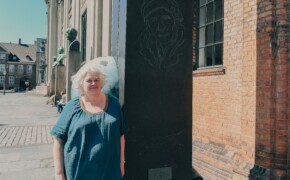Universitetsavisen
Nørregade 10
1165 København K
Tlf: 35 32 28 98 (mon-thurs)
E-mail: uni-avis@adm.ku.dk
Section
Communicating research results to the public is important, but it is not specified in researchers’ contracts, so they are forced to do it in their spare time, three researchers say.

The University of Copenhagen's Commemoration 2022 was marked by a strange combination of ceremony and activism.

Did you know that you might pick up your next bout of flu from a cash dispenser? Two medical students helped set up a study that looks at where we get infected with influenza and other viruses.

The University of Copenhagen’s (UCPH) Professor Morten Meldal has just been awarded the Nobel Prize in Chemistry. The University Post talked to the students and staff at the Department of Chemistry who were the first to celebrate with him.

For six long months Ole Wæver has been confronted with his misinterpretations of the war in Ukraine. Last Sunday it just got too much for the top political scientist. He responded with a 45-tweet monologue.

There are still significantly fewer women at the top of Danish research than men. And if we go back in history, there were even fewer women. But they were there. And they are of great importance to the star scientists of today. We met up with seismologist Trine Dahl-Jensen, who talks about her role model Inge Lehmann.

Some Danish politicians fear that universities will end up being as ‘woke’ as those in the United States. But what is really happening at US universities right now?

The Niels Bohr Institute's collaboration with NATO was a top-down decision and it threatens the university's research independence. Five of the department’s researchers now take a stand against the partnership.

New workplace assessment shows a major decrease in trust in the Office of the Dean at the Faculty of Social Sciences. Employees speak of a poor working environment, and several researchers have left the Department of Political Science because of poor management.

The worst thing you can do for your health is to grow old. But if you do grow old, and still want to stay healthy, you can do a few things that will help. Ageing researcher Morten Scheibye-Knudsen who offers us his best life hacks.
